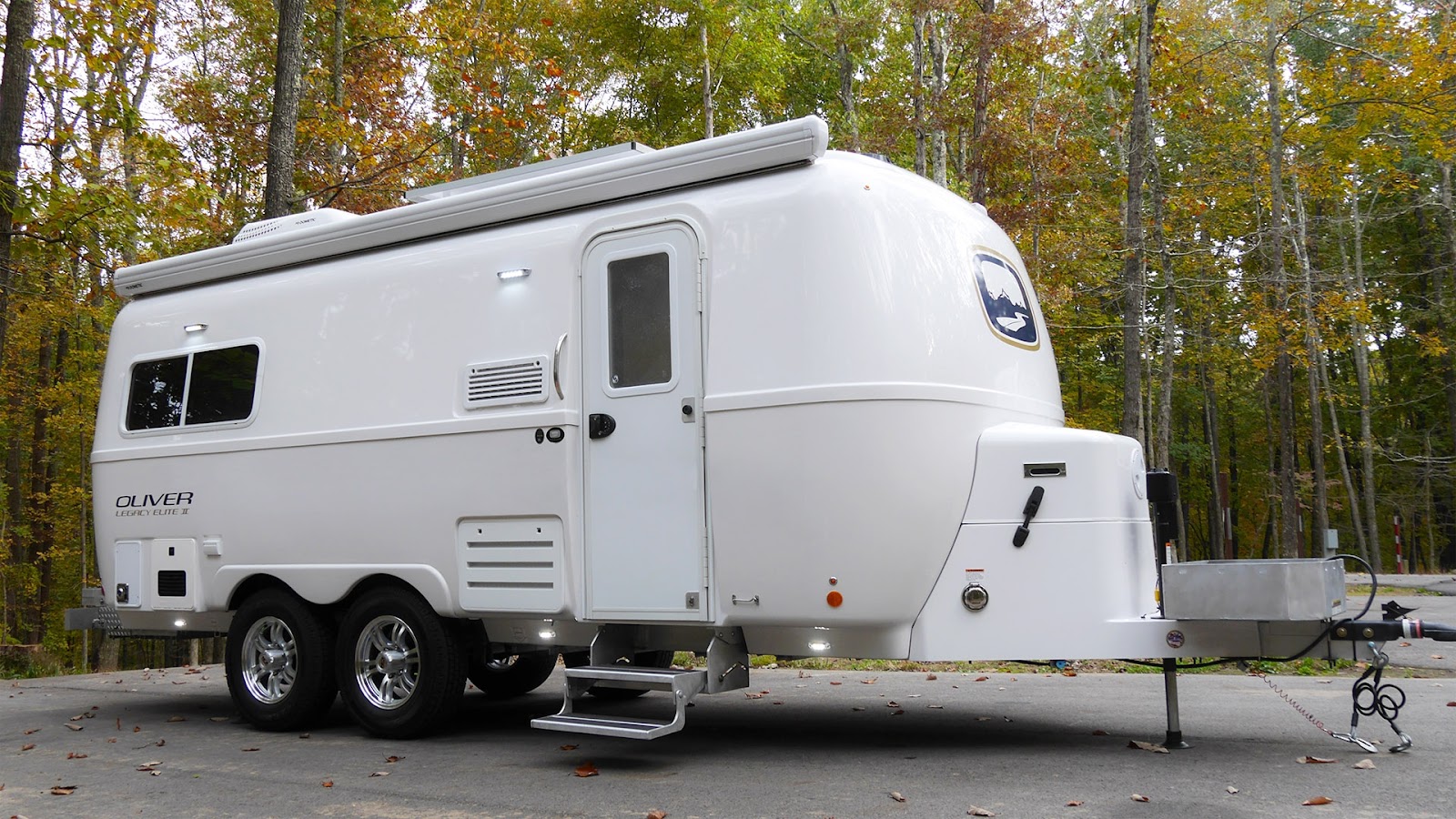2022 #2: Swerving...
Last summer I was on the roof of our fifth wheel doing routine maintenance on the roof seals. If you own an RV you know how important that is. Any water leak can lead to major damage: delamination of the walls and serious damage to the wooden cabinets, interior walls, and floors of the unit. As I crawled around 13 feet off the ground I started wondering how many more years I'd be able to do that.
When fall came, Steph and I worked hard hauling the winter cover up onto the roof and getting that secured. Again, I thought about the difficulty that task will entail as we age.
Then I saw an interesting article in my news feed, something about "America's answer to European RVs." It talked about a little RV manufacturer in Tennessee called Oliver Travel Trailers. They make molded fiberglass travel trailers. I'd seen little Casitas and Scamps in campgrounds before, tiny little white bubble campers, and I always assumed they were cheap little campers for people who couldn't afford a conventional RV. How wrong I was.
Molded fiberglass trailers have some big advantages over conventional laminated-fiberglass-over-frame RVs. Most importantly, the structure is highly resistant to leaks. The outer body is a 2 piece molded shell. No seams between the sidewalls and the roof, and the roof is the same durable fiberglass as the rest of the body. No rubber roof membrane. That means less roof maintenence and no chance of an errant tree branch ripping a hole in your roof.
Oliver trailers take that a step further. They use double molded fiberglass shells, one inside the other like nesting dolls. This provides impressive 4 season insulation, with all the tanks and utilities located between the two hulls for protection. Look under an Oliver and all you see is the fiberglass belly and the aluminum frame. Zero exposed pipes. Even the black/ gray water discharge is enclosed within an aluminum bumper compartment. And with that aluminum frame: no steel frame to rust.
Another Oliver advantage: almost no wood used in the construction. The interior is comprised of the internal fiberglass mold. All the cabinets and counters are molded gel coat fiberglass. The only wood in the entire trailer is the dovetailed kitchen drawers and some plywood inside a fiberglass closet wall. Even if you did get a water leak, there is virtually no wood to damage. The water would just run between the two fiberglass hulls and out the weep holes in the belly. This was a trailer worth looking into!





Comments
Post a Comment